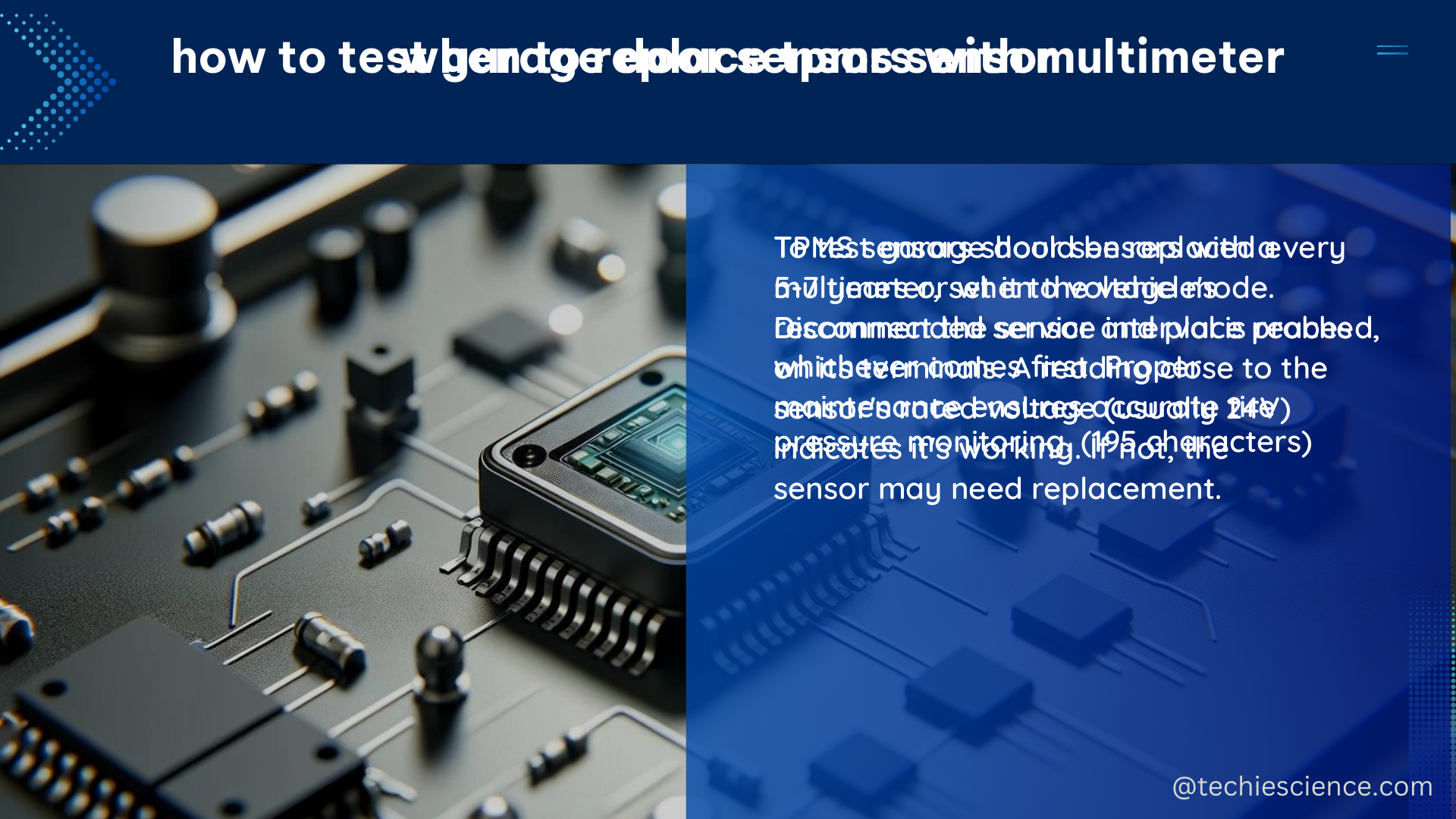The Tire Pressure Monitoring System (TPMS) is a crucial safety feature in modern vehicles, designed to alert drivers when tire pressure drops below a certain threshold. Knowing when to replace TPMS sensors is essential for maintaining the system’s effectiveness and ensuring your vehicle’s safety. This comprehensive guide will delve into the factors that determine the lifespan of TPMS sensors and provide you with the necessary information to make an informed decision on when to replace them.
Understanding TPMS Sensor Lifespan
The estimated lifespan of an Original Equipment (OE) TPMS sensor is typically between 5 to 12 years, with the average lifespan being around 7 years. However, this lifespan can vary significantly depending on several factors, including:
- Driving Habits: Aggressive driving, frequent high-speed maneuvers, and heavy loads can put additional strain on TPMS sensors, reducing their lifespan.
- Weather Conditions: Extreme temperatures, both hot and cold, can accelerate the degradation of TPMS sensor components, particularly the battery.
- Radio Frequency (RF) Transmissions: The frequency and duration of TPMS sensor transmissions can impact their battery life, as each transmission consumes a small amount of power.
- Sensor Placement: The location of the TPMS sensor within the wheel assembly can also affect its lifespan, as sensors placed in more exposed areas may be more susceptible to damage.
Monitoring TPMS Sensor Battery Life

One of the critical factors in determining when to replace TPMS sensors is the battery life. Most TPMS sensors have non-replaceable batteries, and their lifespan is influenced by various factors, including:
- Miles Driven: The more miles a vehicle accumulates, the more the TPMS sensors will transmit data, leading to a faster battery drain.
- Temperature: Extreme temperatures, both hot and cold, can accelerate the battery’s degradation, reducing its overall lifespan.
- Transmission Frequency: The frequency and duration of TPMS sensor transmissions can also impact the battery life, as each transmission consumes a small amount of power.
To assess the battery life of your TPMS sensors, it’s recommended to have a tire dealer or service center perform a diagnostic scan. This scan can provide valuable information about the remaining battery life of each sensor, allowing you to make an informed decision on when to replace them.
Replacing TPMS Sensors
When it comes to replacing TPMS sensors, the most common practice is to do so when replacing your vehicle’s tires. This approach offers several benefits:
- Sensor Lifespan: By replacing the TPMS sensors at the same time as the tires, you can ensure that the sensors are within their estimated lifespan, reducing the likelihood of future issues.
- Sensor Compatibility: New tires may require different TPMS sensor configurations, and replacing the sensors during a tire change can help ensure compatibility and proper functionality.
- Cost Savings: Replacing TPMS sensors during a tire change can be more cost-effective than having them replaced separately, as the labor costs are often bundled into the tire installation service.
It’s important to note that the cost of TPMS sensor replacement can vary depending on the make and model of your vehicle, as well as the specific sensor type. On average, the cost of a single TPMS sensor can range from $50 to $150, with the labor cost for installation typically ranging from $20 to $100 per sensor.
Troubleshooting TPMS Sensor Issues
If you suspect that one or more of your TPMS sensors are malfunctioning, there are a few steps you can take to troubleshoot the issue:
- Check for Warning Lights: If your vehicle’s TPMS warning light is illuminated, it’s a clear indication that there is an issue with one or more of the sensors.
- Perform a Diagnostic Scan: As mentioned earlier, having a tire dealer or service center perform a diagnostic scan can provide valuable information about the status of your TPMS sensors, including their battery life and any error codes.
- Inspect the Sensors: Visually inspect the TPMS sensors for any signs of damage, such as cracks, corrosion, or physical damage, which may indicate the need for replacement.
If you determine that one or more of your TPMS sensors need to be replaced, it’s essential to use only the recommended replacement sensors for your vehicle. Using incompatible or aftermarket sensors can lead to system malfunctions and potentially compromise the safety of your vehicle.
Conclusion
Knowing when to replace TPMS sensors is crucial for maintaining the effectiveness of your vehicle’s tire pressure monitoring system. By understanding the factors that influence TPMS sensor lifespan, monitoring their battery life, and replacing them at the appropriate time, you can ensure your vehicle’s safety and avoid costly future issues. Remember to consult with a professional if you have any concerns or questions about your TPMS sensors, and always use the recommended replacement parts to ensure optimal performance and compatibility.
References:
– TPMS Sensor Replacement Costs and Considerations
– TPMS Sensor Lifespan and Replacement Strategies
– TPMS Sensor Battery Life and Replacement
– TPMS Sensor Replacement Considerations
– TPMS Sensor Lifespan and Replacement Experiences
– TPMS Sensor Replacement Advice

The lambdageeks.com Core SME Team is a group of experienced subject matter experts from diverse scientific and technical fields including Physics, Chemistry, Technology,Electronics & Electrical Engineering, Automotive, Mechanical Engineering. Our team collaborates to create high-quality, well-researched articles on a wide range of science and technology topics for the lambdageeks.com website.
All Our Senior SME are having more than 7 Years of experience in the respective fields . They are either Working Industry Professionals or assocaited With different Universities. Refer Our Authors Page to get to know About our Core SMEs.